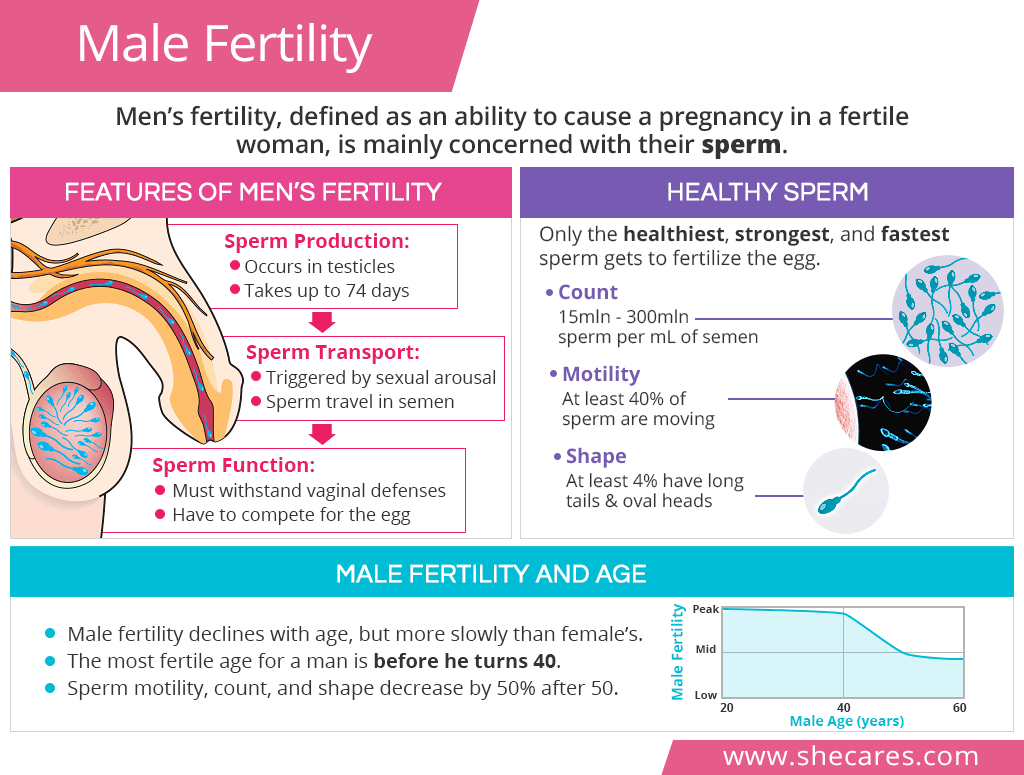All sorts of virtues are attributed to this bodily fluid. But what is it really? What does semen contain? Does it really have health benefits? How are sperm produced? What is quality sperm? Detailed answers.
Semen is a biological fluid that is released from the penis during ejaculation. It contains sperm to fertilize an egg as soon as the opportunity arises. But it has many other functions and qualities... Overview.
What is sperm made up of?
From the Greek sperma (the seed), semen actually contains much more than sperm alone. As June Pla explains in her book Jouissance Club, there is also preseminal fluid (produced by the bulbourethral glands), prostatic fluid (produced by the prostate), and seminal fluid (produced by the seminal vesicles ). Sperm is a mixture of all of these. And contrary to popular belief, sperm represent very little of the total volume: about 1%.
"From a medical point of view, sperm does not contain urine or other secretions harmful to health, but it can of course be the vector of an infection", notes Dr Descamps, surgeon-urologist (source 1).
Does sperm carry infections?
Yes. There are more than thirty sexually transmitted infections caused by viruses, bacteria or parasites. Most of them can pass through all the mucous membranes: the eyes, the throat, the mouth or the anus. Hence the importance of wearing a condom in case of oral, vaginal or anal intercourse with a partner you do not know, with whom you are not exclusive and / or who does not have carried out screening tests.
Does semen have an odor? a taste ? a color ?
It can be sweet, tasteless, while in others, the taste is stronger: salty or bitter. However, to date there is no scientific study on this subject and these impressions come from the testimony of each other. “, emphasizes the urologist (source 1).
Note: sperm is not made to smell good or taste good. Indeed, as Dr. Descamps notes, nature rarely produces useless things. However, when the sperm is emitted, the sexual intercourse is generally “consumed”. Unlike the sweating and secretions emitted before intercourse (sweat, love juice, etc.), the sperm would therefore not aim to attract customers, nor to be exciting!
What are the colors of sperm?
Semen can be transparent, white or slightly yellow. Depending on its density, its color will also be more or less intense. If the intercourse is frequent, the quantity will be less and the color lighter.
In case of change in sperm color, it is recommended to consult. A sperm culture test can be used to look for the possible presence of bacteria in the semen.
How are sperm produced and how long does it take?
If the man can produce sperm every day, complete spermatogenesis (renewal and total maturation of sperm) lasts about 64 days. Sperm production begins at puberty and continues until the end of life.
How long are sperm fertile?
In the vagina, sperm have a lifespan of 2 to 5 days. If frozen, however, they will keep for up to 10 years! However, many things can make them inefficient, such as heat and ultrasound. Based on this observation, several methods of male contraception are now emerging.
Is sperm good for health?
Already, Cleopatra would have been a seminophage (note: relating to the fact of swallowing sperm) in order to benefit from the healing effects of the substance. As for the Romans, they attributed to this seed properties of longevity. According to legend, Empress Messalina was covered in sperm from young teenagers who masturbated on her (source 1). Today, we find this practice in porn under the name of “Bukkake” which means “splatter” in Japanese. So what are the real benefits of this mythical substance?
Does it have antidepressant effects?
According to some studies, this liquid has natural properties acting as an antidepressant (source 2). It would release serotonin and melatonin, two hormones known to calm anxiety. Direct contact with sperm through any orifice would therefore help fight the blues. More seriously: as we know, countless elements come into play in the feeling of a sexual relationship. The love and trust that we have (or not) towards our partner; our psychological and physical state; etc All this will largely promote or disrupt the production of well-being hormones.
A nutritious seed
Sperm would contain proteins, vitamins (C and B12), and would also be potentially rich in minerals (potassium or magnesium). Yum-yum.
Does it make you fat? No. A teaspoon of the seed "contains 5 to 25 calories, or between 4 radishes and 100 grams of cauliflower. Normally, it should not weigh too much on the stomach. Protein level, on the other hand, it is rather not bad, since it contains the equivalent of an egg white, ”says this Neon Mag post.
Positive effects for skin and hair?
Scientists from the University of Graz in Austria, Tobias Eisenberg and Frank Madeo, have claimed that a molecule contained in sperm: spermidine is an excellent anti-aging agent. The seed would be good for both skin and hair beauty.
As June Pla reminds us in her book: “It is not because it is supposedly good for the health that people are ready to eat cod liver oil or to slather themselves with slime of Burgundy snails. So there's no need to arrive with big clogs, a crooked smile and this article in hand to convince your other half of the merits of spermatophagy.
How to know if the sperm is qualitative?
Let’s be clear, we judge the fertile quality of the sperm and not its taste quality for example, even if it is a safe bet that the two are linked. "The spermogram is the basic examination in the exploration of male infertility", explains urological surgeon Fabien Descamps. To do this, we will analyze the sperm from different angles: are they numerous, mobile, lively?
This test must take place after three days of abstinence and the standards vary according to the laboratories, but the "normal" volume of quantity of semen emitted during an ejaculation would be between 1.5 and 6 ml (like between a small and a heaping teaspoon). According to new standards from WHO, World Health Organization (May 2010), the normal ejaculation sperm count is over 15 million/ml and over 39 million through the entire ejaculation. So much for the quantity.
We will also make sure that they have good vitality (a majority of them alive), and that they move (a majority on the move). But beware: many scientists agree that there can be significant variations in these values in the same patient over time and for a variety of reasons. The clinical relevance of these results is therefore variable.
How to improve sperm quality?
- Keep your testicles cool: as we know, to be effective, spermatozoa must have a temperature 2°C lower than that of the body. For those who want to design, saunas, hammams and jacuzzis are therefore not great friends. Like anything that can disturb the natural regulation in that place: clothes that are too tight, cell phone in your pocket at all times (possible endocrine disruptors as a bonus), etc.
- It is also advisable to consume foods rich in magnesium, vitamin B9, selenium and zinc, as well as those rich in omega-3 such as nuts and walnut oil, fatty fish (salmon, herring, anchovies), rapeseed and soy”, explains the Procrea site, a group of cutting-edge medical establishments, made up of a team of fertility experts (source 3).
- Take care of the hygiene of life in general: as in most areas, the hygiene of life has a remarkable influence on the quality of sperm. Thus, lack of sleep, consumption of tobacco, alcohol or other types of drugs, or even being overweight can hinder the quality of spermatozoa.





Wow its amaizing
ReplyDelete